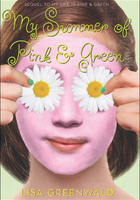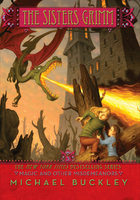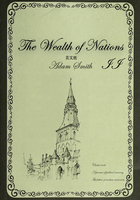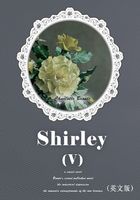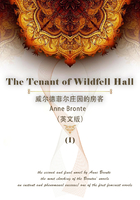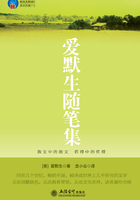Whatever doubt may still envelop the rationale of mesmerism, its startling facts are now almost universally admitted. Of these latter, those who doubt, are your mere doubters by profession—an unprofitable and disreputable tribe. There can be no more absolute waste of time than the attempt to prove, at the present day, that man, by mere exercise of will, can so impress his fellow, as to cast him into an abnormal condition, of which the phenomena resemble very closely those of death, or at least resemble them more nearly than they do the phenomena of any other normal condition within our cognizance; that, while in this state, the person so impressed employs only with effort, and then feebly, the external organs of sense, yet perceives, with keenly refined perception, and through channels supposed unknown, matters beyond the scope of the physical organs; that, moreover, his intellectual faculties are wonderfully exalted and invigorated; that his sympathies with the person so impressing him are profound; and, finally, that his susceptibility to the impression increases with its frequency, while, in the same proportion, the peculiar phenomena elicited are more extended and more pronounced.
I say that these—which are the laws of mesmerism in its general features—it would be supererogation to demonstrate; nor shall I inflict upon my readers so needless a demonstration; to-day. My purpose at present is a very different one indeed. I am impelled, even in the teeth of a world of prejudice, to detail without comment the very remarkable substance of a colloquy, occurring between a sleep-waker and myself.
I had been long in the habit of mesmerizing the person in question, (Mr. Vankirk,) and the usual acute susceptibility and exaltation of the mesmeric perception had supervened. For many months he had been laboring under confirmed phthisis, the more distressing effects of which had been relieved by my manipulations; and on the night of Wednesday, the fifteenth instant, I was summoned to his bedside.
The invalid was suffering with acute pain in the region of the heart, and breathed with great difficulty, having all the ordinary symptoms of asthma. In spasms such as these he had usually found relief from the application of mustard to the nervous centres, but to-night this had been attempted in vain.
As I entered his room he greeted me with a cheerful smile, and although evidently in much bodily pain, appeared to be, mentally, quite at ease.
"I sent for you to-night," he said, "not so much to administer to my bodily ailment, as to satisfy me concerning certain psychal impressions which, of late, have occasioned me much anxiety and surprise. I need not tell you how sceptical I have hitherto been on the topic of the soul's immortality. I cannot deny that there has always existed, as if in that very soul which I have been denying, a vague half-sentiment of its own existence. But this half-sentiment at no time amounted to conviction. With it my reason had nothing to do. All attempts at logical inquiry resulted, indeed, in leaving me more sceptical than before. I had been advised to study Cousin. I studied him in his own works as well as in those of his European and American echoes. The 'Charles Elwood' of Mr. Brownson, for example, was placed in my hands. I read it with profound attention. Throughout I found it logical, but the portions which were not merely logical were unhappily the initial arguments of the disbelieving hero of the book. In his summing up it seemed evident to me that the reasoner had not even succeeded in convincing himself. His end had plainly forgotten his beginning, like the government of Trinculo. In short, I was not long in perceiving that if man is to be intellectually convinced of his own immortality, he will never be so convinced by the mere abstractions which have been so long the fashion of the moralists of England, of France, and of Germany. Abstractions may amuse and exercise, but take no hold on the mind. Here upon earth, at least, philosophy, I am persuaded, will always in vain call upon us to look upon qualities as things. The will may assent—the soul—the intellect, never.
"I repeat, then, that I only half felt, and never intellectually believed. But latterly there has been a certain deepening of the feeling, until it has come so nearly to resemble the acquiescence of reason, that I find it difficult to distinguish between the two. I am enabled, too, plainly to trace this effect to the mesmeric influence. I cannot better explain my meaning than by the hypothesis that the mesmeric exaltation enables me to perceive a train of ratiocination which, in my abnormal existence, convinces, but which, in full accordance with the mesmeric phenomena, does not extend, except through its effect, into my normal condition. In sleep-waking, the reasoning and its conclusion—the cause and its effect—are present together. In my natural state, the cause vanishing, the effect only, and perhaps only partially, remains.
"These considerations have led me to think that some good results might ensue from a series of well-directed questions propounded to me while mesmerized. You have often observed the profound self-cognizance evinced by the sleep-waker—the extensive knowledge he displays upon all points relating to the mesmeric condition itself; and from this self-cognizance may be deduced hints for the proper conduct of a catechism."
I consented of course to make this experiment. A few passes threw Mr. Vankirk into the mesmeric sleep. His breathing became immediately more easy, and he seemed to suffer no physical uneasiness. The following conversation then ensued:—V. in the dialogue representing the patient, and P. myself.
P. Are you asleep?
V. Yes—no I would rather sleep more soundly.
P. [After a few more passes.] Do you sleep now?
V. Yes.
P. How do you think your present illness will result?
V. [After a long hesitation and speaking as if with effort.] I must die.

